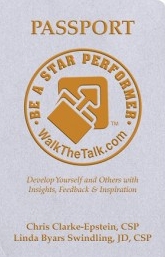I loved watching the World Series. It was even more fun for me because I’m from St. Louis and now live in Dallas – so either way it was a win for me! (This was not the case for my husband and friends….all Rangers fans.)
Both teams had incredible coaching. One of the most poignant coaching moments was in Game 4 when the Rangers’ coach Ron Washington pulled pitcher Derek Holland out in the top of the 9th inning after he had almost pitched a history making shut out. You could see Holland shaking his head “No” that he didn’t want to come out of the game and Washington nodding his head “Yes” that he was pulling him out. The crowd cheered as Holland left the mound. The Rangers went on to win Game 4.
We often need a coach or mentor to guide us to do what is best for ourselves and those around us. I hired an executive coach to help me negotiate the transition from practicing law to writing and speaking. A recent article in USA Today says that women are less likely to have coaching and sponsors in the workplace. Even though there are more women Fortune 500 CEO’s now than ever, there is still a gender gap between men and women on the job. This gender gap can be largely attributed to women “struggling to get the mentors they need.”
Mentoring and coaching can help you negotiate your way to star performance and creating a professional breakthrough.
“One who wants to know is better than one who already knows.” Yiddish proverb
In the Passport to Success I coauthored with Chris Clarke Epstein, CSP called Be a STAR Performer: Develop Yourself and Others with Insights, Feedback & Inspiration we reveal that to be a STAR performer you should:
Know your Strengths. Most people can rattle off their deficiencies quickly but have to give more thought to their list of strengths. Ways to improve your strengths are:
Use it in a volunteer setting
Take an advanced class
Read a book about it
Teach it to a young person
Apply it to a new situation
Target your efforts. Applying your strengths to new situations will help you uncover “learning edges” which are areas that need improvement. Partner with people who have skills that you do not have and offer your strengths.
Hold yourself Accountable. Keep your promises. STAR performers ask these questions before committing to someone or something:
Can I really do this?
Is there someone more appropriate?
Can I do it in the promised time?
Can I do it well?
Surround yourself with positive Relationships. One of the best ways to improve in your position is with a mentor. Mentors understand organizational politics, have professional skills and are willing to share their expertise. First, determine the type of guidance you need and how much mentoring you are seeking. Let others know you are looking for a mentor, ask the person you have identified and establish how you will work together.
Many are willing to serve as a mentor and like playing a role in other people’s breakthroughs. However, they want someone who doesn’t waste their time and will actually take action. You can reach STAR performance. Determine what you need and find the courage to ask for it!
Journey On!
About Linda: A recognized authority on negotiations, workplace issues and strategic communication, Linda Swindling, JD, CSP is an author, media expert, a “recovering” employment attorney, and a professional speaker. Contact us to book Linda to speak at your event.
